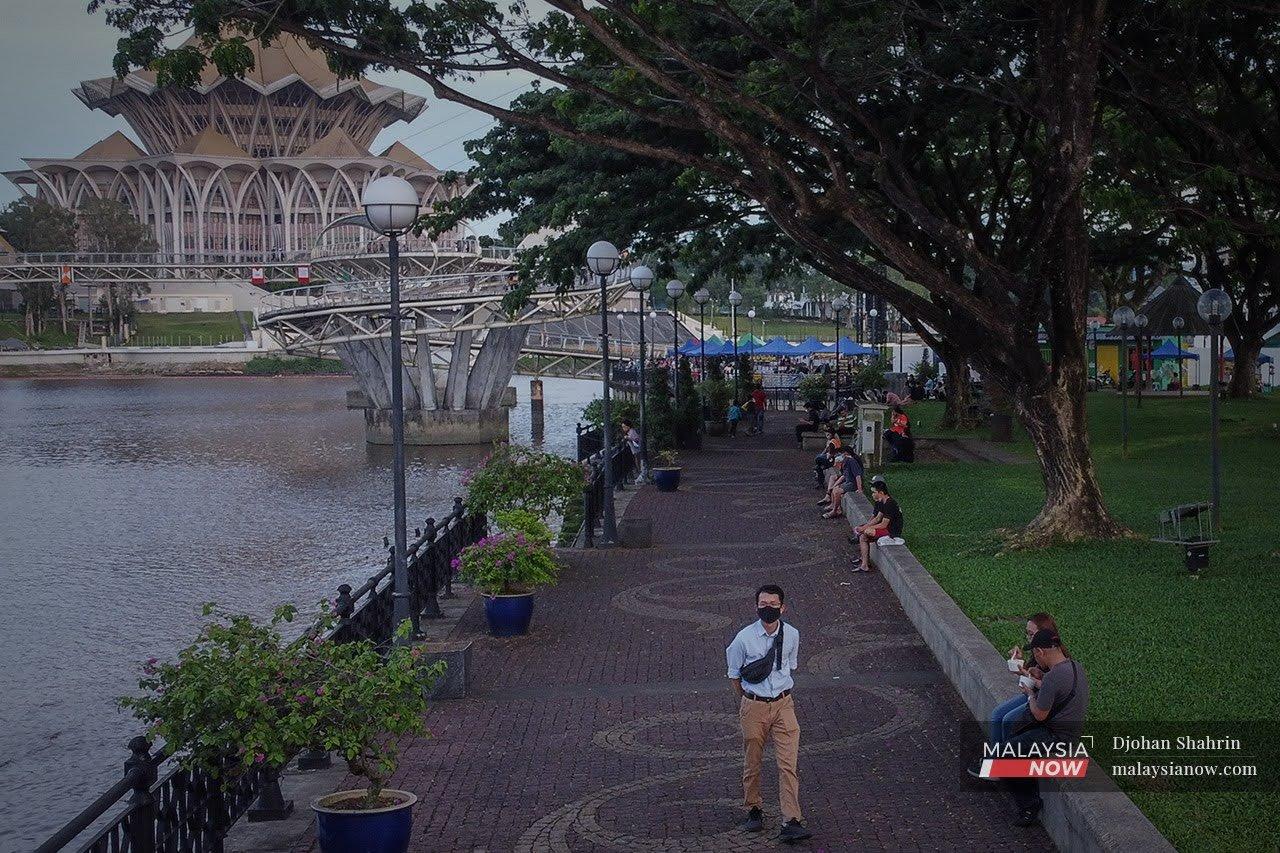Welcome for Chinese DCM may not mean swing in support for SUPP, says Sarawak analyst
James Chin says it will take time for the Chinese in Sarawak to warm up to SUPP despite their disappointment in DAP.
While Chinese support for DAP appears to have shifted during the recent Sarawak election, it remains to be seen whether votes will swing towards the Sarawak United Peoples’ Party (SUPP) and its umbrella coalition Gabungan Parti Sarawak at the next general election, an analyst says.
James Chin, an observer of politics in the state, said the Chinese in Sarawak were happy with the appointment of SUPP president Dr Sim Kui Hian as one of three deputy chief ministers in the new state Cabinet.
While the appointment may be seen as merely symbolic, he said, the Chinese were hopeful that Sim would be able to help rejuvenate the economy in the aftermath of the Covid-19 pandemic.
He also spoke of hopes that Sim would bring improvements in other areas as well.
“The Chinese in Sibu, particularly, would expect him to address the long-standing flood issue,” he said to MalaysiaNow.
But Chin, of Australia’s University of Tasmania, also said that a close examination of the voting patterns in the election would show that the Chinese had not returned to SUPP despite their apparent rejection of DAP.
“Voter turnout was less than 50%,” he said.
Acknowledging that the Chinese were “very disappointed” with DAP, he said it would nevertheless take time for them to shift their support to SUPP which they had criticised as politically weak since the 2006 state polls.
“The Chinese in Sarawak know that without an opposition in the state legislative assembly, SUPP will be complacent and arrogant,” he said.
“That is why they were supportive of DAP, as a form of checks and balances. But at the same time, they are also still disappointed with DAP. So they would rather not go out to vote. No voter turnout means no votes for DAP.”
Sim is one of a handful of Chinese to serve as deputy chief minister in the Sarawak government. Others include James Wong Kim Min who served from 1963 to 1966, Stephen Yong (1970-1974), Sim Kheng Hong (1974-1991), Wong Soon Kai (1991-1996) and Dr George Chan (1996-2011).
Sim’s appointment as a deputy chief minister followed SUPP’s victory in 13 seats during the Sarawak state election on Dec 18, nearly double the number of seats won at the previous polls five years earlier.
SUPP retained seven seats – Batu Kawah, Batu Kitang, Simanggang, Repok, Meradong, Piasau and Senadin – and regained six others – Opar, Kota Sentosa, Bukit Assek, Pelawan, Tanjong Batu and Pujut.
DAP, on the other hand, won only two of the 22 seats it contested in the state polls, with Sarawak chief Chong Chieng Jen admitting the loss of support due to the party’s failure to meet voters’ expectations.
Many Chinese-majority areas had recorded low voter turnouts of between 30% and 40%. In Padungan and Pending, the only seats won by DAP, voter turnout was 44% and 43% respectively.
Richard Wee, a prominent figure in Sarawak’s Chinese community, said the Chinese were happy with Sim’s appointment as deputy chief minister.
Speaking to MalaysiaNow, he said the winds of change were coming for SUPP amid the political tussles at the federal level.
He, too, said Sarawak DAP’s failure to fulfil its promises had caused a shift in support, dealing the party a heavy blow at the recent election.
Chin said it was too early to tell if the low Chinese turnout would continue at the next general election, adding nevertheless that it would take time for DAP to regain the confidence of voters in the community.
Judging by the current voting trend, he said, DAP might end up with only one or two urban Chinese-majority parliamentary seats if a general election is called this year.
“The Chinese are still very disappointed with DAP,” he said. “Much depends on when GE15 is called. If it is called this year, the Chinese voters will not return to DAP.”
Subscribe to our newsletter
To be updated with all the latest news and analyses daily.
